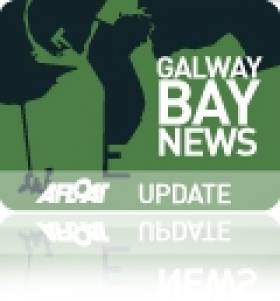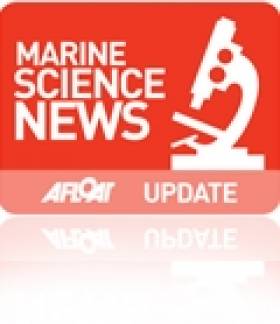Displaying items by tag: Water Treatment
Clonshaugh Chosen For Fingal Sewage 'Super Plant'
#Sewage - Clonshaugh in North Dublin has been chosen as the location for the city's new water treatment 'super plant' which has long faced objections from local campaigners.
As The Irish Times reports, a meeting of Fingal County Council yesterday afternoon (10 June) saw the site near Dublin Airport chosen over Annsbrook and Newtowncorduff, both near the coastal towns of Rush and Lusk.
Part of the plan includes the construction of a 26km orbital sewer to collect waste from parts of Dublin, Kildare and Meath, and an outfall pipeline that will eject waste near Ireland's Eye.
Project managers have described the Clonshaugh option as "ecologically and environmentally better" than the alternatives, but campaigners such as Reclaim Fingal chair Brian Hosford argue that "the potential for environmental disaster [with a single large plant] is enormous".
In January 2012, Minister for Health James Reilly raised his own concerns that any potential malfunction at the large-scale facility - second-only in scale to the new water treatment plant at Ringsend - could see huge amounts of raw sewage pumped into the Irish Sea.
Meanwhile, The Irish Times also spoke to a farming family who may lose as many as 40 acres if the 'super plant' gets the go-ahead adjacent to their land.
"I would have to change my whole system of farming if this goes ahead," said 77-year-old PJ Jones, who added that his biggest concern was the smell.
#GalwayBay - A Galway City Council official has denied claims that raw sewage from a treatment plant at Mutton Island is being discharged into Galway Bay.
As the Galway Advertiser reports, Ciarán Hayes told a special meeting of the council last Monday 15 April that he "would not like the impression to go out that we would allow sewage to be discharged, it's not".
Hayes was responding to questions from Cllr Catherine Connolly with regard to tenders issued for the upgrading of the treatment plant, which forms part of the Galway Main Drainage Stage 3 and which has been approved for funding from the Department of Environment.
He added that the current system is licences by the Environmental Protection Agency (EPA) and "is in accordance with industry best practice".
Meanwhile, the meeting also discussed a proposed extension of pedestrian access to Mutton Island lighthouse, which as previously reported on Afloat.ie was opened to tour groups last year after extensive refurbishment since 2005.
The Galway Advertiser has more on the story HERE.
Irish Firm Leads Satellite Coastal Research Project
#MARINE SCIENCE - An Irish marine science company will lead a new research project using satellites to monitor coastal outlets in Europe, as Silicon Republic reports.
TechWorks Marine, based in Dun Laoghaire, has won the contract to head up the European Space Agency's earth observation project in what is a first for any Irish company.
The business specialises in real-time marine data platforms, and in this project will be using its expertise to assist operators and developers of water treatment plants to help reduce their impact on the environment.
A main focus of the observation research will be the coastal effect of wastewater treatment in Donegal Bay.
TechWorks Marine MD Charlotte O'Kelly told Silicon Republic that improvements in sensor technology have prompted the development of satellite imagery of a high enough resolution to allow for close monitoring of coastal activity even from earth orbit.
Minister of State for Research and Innovation Sean Sherlock said the contract "clearly indicates that Irish SMEs have the capability and expertise to lead projects in this highly competitive sector".
Silicon Republic has much more on the story HERE.


























































